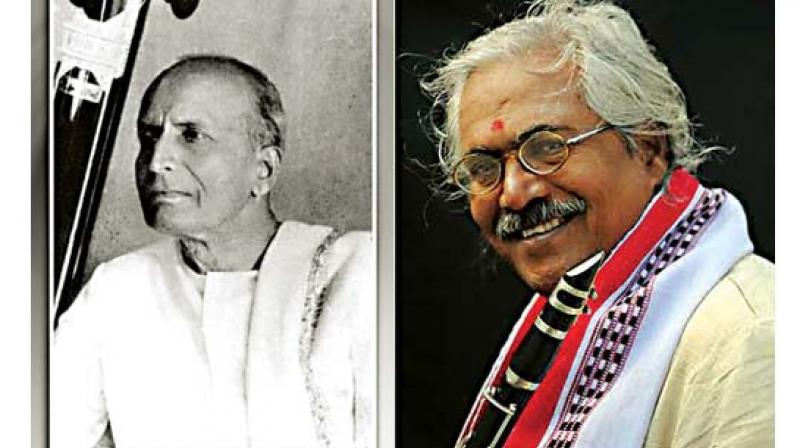Remembering Raichur's own Pandit Siddarama Jambaladinni

Come Saturday and the town of Raichur will come alive to a music concert to mark the birth centenary of Pandit Siddarama Jambaladinni. Organised every year by his disciple, Pandit Narasimhalu Vadavati, for the last three decades in his memory, this year the concert will be grander than usual, befitting the occasion. A number of Hindustani classical singers, including Rajan and Sajan Mishra, have been invited for the night- long programme.
Although much revered by his peers, Pandit Siddarama Jambaladinni did not touch the heights of some of his contemporaries as he was confined to places like Raichur and Kalaburagi, where music has little value, regrets Pandit Vadavati.
“Pandit Bhimsen Joshi, Kumara Gandharva and others from our state became famous because not only were they immensely talented but also lived in big cities, where music was highly appreciated,” he observes .
As a result it's hard to come across music cassettes of his compositions as barring one brought out by HMV Sangeetha and another by the AIR, there are none for his fans to enjoy. But in his lifetime he gave performances that moved the legends. At a music concert at the famous Veeranarayana temple in Gadag town, Gururaj Joshi, father of legendary singer, Pandit Bhimsen Joshi, who was in the audience, was so impressed by Pandit Jambaladinni that he went up to the dais to embrace him. “I have listened to the rendition of the famous poem , Mooruthiyanu nilliso Madhava, by my own son. But your performance has been impressive. There is an indescribable melody in your alaap,” he is said to have remarked.
The legendary Hindustani singer of the Jaipur gharana, Pandit Mallikarjun Mansur, too was so moved by the rendition of vachanas by his disciple, Pandit Jambaladinni, that he declared at a music concert, “When it comes to vachanas, one must only hear Jambaladinni's version of them as he handles them with his signature classical touch.”
What made Pandit Jambaladinni unique was his fusion of Pandit Panchakshara Gavai’s Gwalior gharana and Pandit Mansur’s Jaipur gharana in his performances.
Born in Jambaladinni village , Manvi taluk , Raichur district, he was drawn to the world of music at an early age. But his father was not impressed by his talent and once on seeing him playing with his friends, became so enraged that he threw a stone at him, narrowly missing him. But this upset the young Jambaladinni so much that he decided to leave his village and move to Yadagir ,where he learnt music for two years from a theatre artiste.
He later moved to Gadag to learn music under Panchakashari Gavai of Veerashaiva Punyashrama. Spending nearly five years there, he became an ardent disciple of the Gavai. But his love for the vachanas drew him to Pandit Mansur under whom he learnt music for about 15 years..
On returning home, he joined a theatre company in Gabbur village, Devadurga taluk, to make a living and later became a part of the Shri Kumareshwara Krupaposhita Nataka Sangha started by Panchakashari Gavai in the hope of making more money as he had a family by then.
When Panchakashari Gavai passed away in 1944, he took over the reins of his music school until 1949 and his financial problems eased somewhat after he began doing programmes for the Dharwad AIR as well.
While composing music for theatres in the north Karnataka region, he became a trendsetter, fusing classical music with light music and even music from the movies to make it attractive to listeners.
He also started another trend of composing music for lyrics as until then the music had come first and the lyrics later. This novel experiment, which started with the Natya Vaibhav Theatre company run by famous theatre personality, Enagi Balappa, cemented a life-long friendship between the two. Financial problems, however, continued to haunt Pandit Jambaladinni all through his life as he never demanded a fee for his programmes, but accepted whatever sum was presented to him. He would always say, “ I overcame my sorrows by singing the vachanas. They have taught me the true meaning of life . I learnt to have pure thoughts, overcome fear and become confident to face life's challenges from them."
Although he was keen to migrate either to Maharashtra or another state in search of a more appreciative audience, his domestic problems are said to have held him back and robbed him of the fame he was so entitled to.

